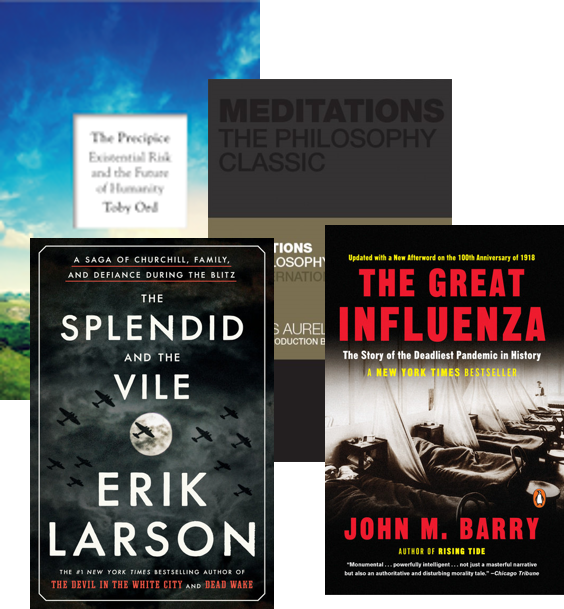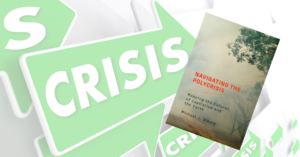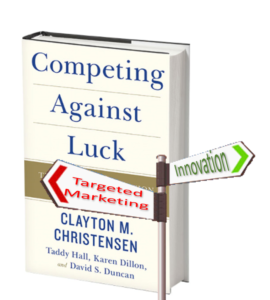Motivated by the novel coronavirus pandemic, and not doing my normal amount of traveling, I have been reading books about leadership in times of crisis. The pandemic has presented leaders of all types with a range of navigational, operational, and inspirational challenges. Periodically, my friends and colleagues discuss books and other materials that are relevant to our times and our company. To this end, I thought I would share with our broader Enterra network some of the books that I am currently living with that I find enlightening, insightful, and inspirational during this crisis. Below are books I put in the “Leadership in Times of Crisis” category:
The Splendid and the Vile, by Erik Larson (New York: Crown Books, 2020).
https://www.penguinrandomhouse.com/books/225405/the-splendid-and-the-vile-by-erik-larson/
This book provides a great account of leadership during times of crisis. It describes Winston Churchill at his best — leading his nation through harrowing trials during the years prior to the United States’ entering into WWII. Larson vividly describes Britain alone, fighting Hitler, surviving the Battle of Britain – unbroken in spirit, resolute in mission and purpose – laying the groundwork for a new world order to come after the war ended.
The book provides an intimate account of Churchill, his family, and close friends/advisors, his cabinet, and interactions with FDR during a most critical time in British history. A time that required a true world leader that understood the need for strength, empathy, personal alliances and vision. The book provides leadership lessons — describing many of Churchill’s failures and successes while navigating Britain’s survival. In a note to readers, Larson writes, “What follows is by no means a definitive account of Churchill’s life. … Mine is a more intimate account that delves into how Churchill and his circle went about surviving on a daily basis: the dark moments and the light, the romantic entanglements and debacles, the sorrows and laughter, the odd little episodes that reveal how life was really lived under Hitler’s tempest of steel.”
The Great Influenza: The Story of the Deadliest Pandemic on History, by John M Barry (New York: Penguin Books, 2020). World War I and the Influenza Pandemic of 1918.
https://www.penguinrandomhouse.com/books/288950/the-great-influenza-by-john-m-barry/
The value of this book during the novel coronavirus pandemic should be readily apparent. John Barry’s work is a great piece of writing and research that discusses that 1918 influenza pandemic in rich historical and medical detail that is riveting to read. The following is a quotation from the Prologue of the book:
“The story of 1918 influenza virus is not simply one of havoc, death, and desolation, of a society fighting war against another human society. It is also a story of science, of discovery, of how one thinks, and of how one changes the way one thinks, of how amidst near-utter chaos a war against a few men sought the coolness of contemplation, the utter calm that precedes not philosophizing but grim, determined action. For the influenza pandemic that erupted in 1918 was the first great collision between nature and modern science. It was the first great collision between a natural force and a society that included individuals who refused to either submit to that force or to simply call upon diving intervention to save themselves from it, individuals who instead were determined to confront this force directly, with a developing technology and with their minds.”
The Precipice: Existential Risk and The Future of Humanity, by Toby Ord (London: Bloomsbury: 2020).
https://www.bloomsbury.com/uk/the-precipice-9781526600219/
Toby Ord is a Senior Research Fellow at Oxford University. His book is an argument for society to use reason and wisdom to manage our strategic affairs. He asks us to understand the immense power humanity has now to do good and the potential to destroy ourselves if we do not use wise judgment. Mr. Ord states “…that safeguarding humanity’s future is the defining challenge of our time.” He writes, “For we stand at a crucial moment in the history of our species. Fueled by technological progress, our power has grown so great that we for the fits time in humanity’s long history, we have the capacity to destroy ourselves – severing our entire future and everything we could become. Yet humanity’s wisdom has grown only falteringly, if at all, and lags dangerously behind. Humanity lacks the maturity, coordination and foresight necessary to avoid making mistakes from which we could never recover. As the gap between our power and wisdom grows, our future is subject to an ever-increasing level of risk. This situation is unsustainable.” Ord states “The central claim is that there are real risks to our future, but that our choices can still make all this difference. I believe we are up to the task: that through our choices we can pull back from the precipice and, in time, create a future of astonishing value-with a richness we can barely dream, made possible by innovations we are yet to conceive. Indeed, my deep optimism about humanity’s future is core to my motivation n in writing this book. Our potential is vast. We have so much to protect.”
Meditations, by Marcus Aurelius.
https://www.wiley.com/en-us/Meditations%3A+The+Philosophy+Classic-p-9780857088413
The Meditations of Emperor of Rome Marcus Aurelius is a foundational work that should be read several times at different critical stages of life. Aurelius teaches man to rise above worldly concerns and focus on the essential and important aspects of life. Donald Robertson, in his introduction to the 2020 Wiley Publisher edition of the book, writes:
“Marcus wasn’t the sort of decadent autocrat that many people today associate with the immensely privileged position of Roman emperor. For example, Herodian writes of him: He was concerned with all aspects of excellence, and in love of ancient literature he was second to no man, Roman or Greek; this is evident from all his sayings and writings which have come down to us. To his subjects he revealed himself as a mild in moderate emperor; He gave audience to those who asked for it and forbade his bodyguard to drive off those who happened to meet him. Alone of the emperors, he gave proof of his learning not by mere words or knowledge of philosophical doctrines but by his blameless character in temperate way of life. His reign thus produced a very large number of intelligent men, for subjects like to imitate the example set by their ruler.”
I hope you enjoy these books as much I have enjoyed them.





